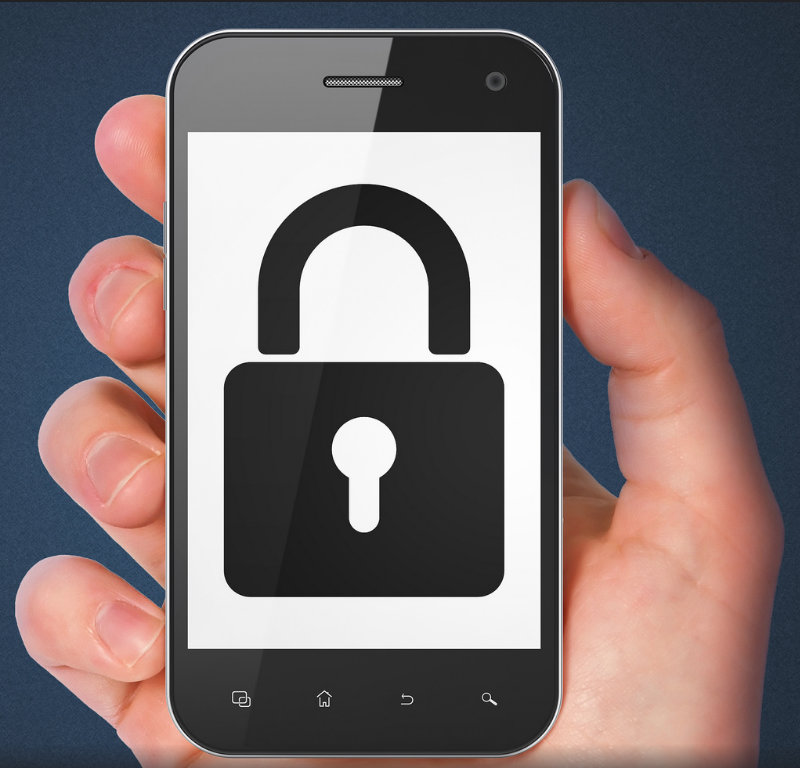
For the most part, the world of computing and communication has gone mobile. A closer look at the numbers reveals a growing trend of mobile becoming the preferred way of accessing the Internet. According to emarketer.com, nearly three-fourths of all adults in the U.S. used a smartphone in 2016. At the same time, the average time spent using mobile devices each day continued to climb, while time spent engaging with other media declined. Currently, adults are spending an average of 75 minutes each day interacting with their mobile devices. Additionally, research from eMarketer indicates that texting and voice calls account for 22 percent of that time and are the most common tasks performed on mobile devices. Time spent with email and engaging on social media platforms are a distant second at ten percent.
Mobile Security for BYOD Settings
With so many people using mobile devices, including more and more employees working remotely, the need for enhanced mobile security has never been greater. Additionally, the growth of enterprise mobility solutions is slowly reducing the need for traditional office settings. Companies are also implementing bring your own device or BYOD programs and even moving to mobile-first environments. In fact, the majority of IT decision makers support BYOD and mobility programs. However, as the number of mobile devices connected to both enterprise and public networks increases, companies need to be acutely aware of mobile security, including these important aspects:
- Mobile Device Management. Because it’s so difficult to accurately monitor how employees use their mobile devices, especially personally owned devices, mobile device management is vital to maintain your organization’s mobile security. This can be easier said than done since it could violate employees’ privacy rights. However, there are several viable systems and applications that can help improve enterprise mobile security and offer effective mobile management and support.
- Mobile Application Management. While the ever-increasing access to mobile apps is great, when you operate in a BYOD environment, managing those apps can be a serious security issue for your organization. This makes robust mobile application management(MAM) more important than ever. Essentially, MAM is the delivery and administration of enterprise software to the end users’ personal and corporate mobile devices. Implementing effective MAM not only helps with software delivery and application life cycle management, but it also tracks usage. Furthermore, many MAMs can also match mobile devices and their owners to specific IT policies and better control how company data is shared via mobile applications.
- Antivirus for Devices. In addition to mobile device and app management, it’s imperative that companies and organizations implement the appropriate level of antivirus protection. Hackers and malware are a constant threat. This means any employee using the Internet on a personal mobile device must install and update to the latest antivirus and anti-malware software properly to ensure device security is maintained.
- Encryption. An important part of any organization’s security plan needs to include encryption, which is the process of converting information or data into a secure code to prevent unauthorized access. Companies should also encrypt mobile device network communication while at work to prevent outside snooping. There are various steps you can take to implement proper encryption, including requiring all mobile devices to use approved encryption protocol before access is granted to corporate email accounts and files.
Additional Mobile Device Security
To help you improve your company’s mobile device security even more, here are some additional important measures to consider.
- Create a Mobility Policy. Every company should create and enforce a mobility policyThis policy will be different for each company, but should include some primary guiding principles, align with your company culture and provide flexibility without compromising security.
- Be Transparent with Employees. As with any company policy, employees appreciate transparency. Your mobile security policy should be open and clear, without hidden features and rules. Let your employees know up front what they can and cannot do with their devices, whether it’s company or personally owned. A clear policy will also help eliminate confusion and enhance the effectiveness of your company’s security policy.
- Mixing Personal and Professional Use. When your employees use their own personal devices for business, it’s imperative that your mobile security policies are clear and flexible. More importantly, it must protect your company’s and customers’ private information. Therefore, you must create a proper balance between your employees’, company’s and customers’ security and privacy.
Photo Credit: geeknose Flickr via Compfight cc
This article was first published on New Era Technology.
New Era Technology works with customers as a trusted technology adviser. We help customers work faster, smarter and more securely in a rapidly changing digital world. More than 4,500 customers worldwide rely on collaboration, cloud, data networking, security, and managed service solutions from New Era to accelerate time to market, speed innovation, increase productivity, and create better learning experiences.

